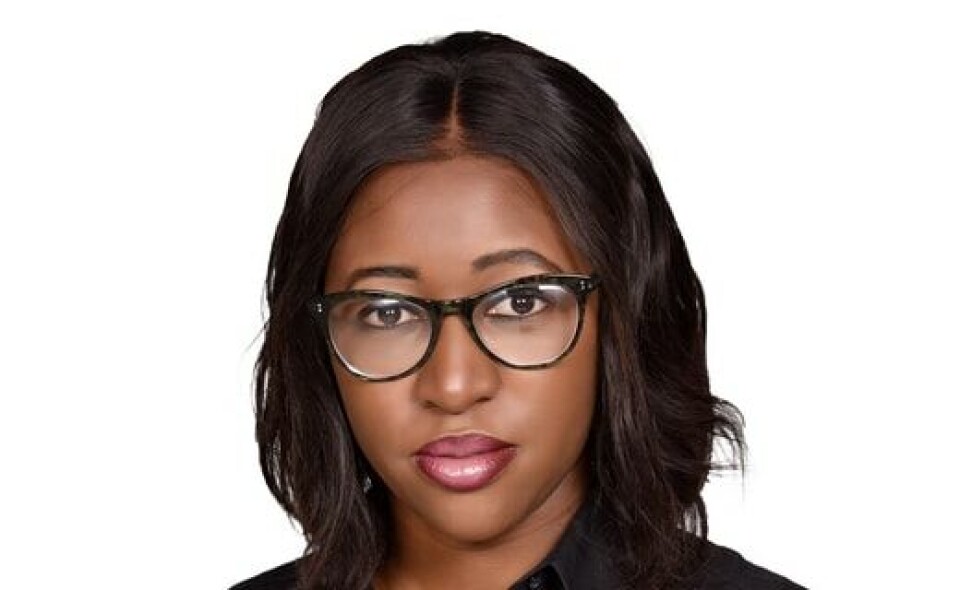Copyright : Re-publication of this article is authorised only in the following circumstances; the writer and Africa Legal are both recognised as the author and the website address www.africa-legal.com and original article link are back linked. Re-publication without both must be preauthorised by contacting editor@africa-legal.com
Need Drives Innovation as Kenya becomes “Silicon Savanna”

Advocate Fiona Makaka speaks to Africa Legal’s Carol Campbell about the role lawyers can play in keeping new ideas above board.
There is a sense, when speaking to Fiona Makaka, a legal specialist in technology, telecommunications and media with TripleOKLaw in Nairobi, that FinTech innovation in Africa will give the world its next big thing.
There is no comfort zone on this continent of 1.3 billion lives. People want to buy, pay, move money, draw cash and save – yet, the formal banking sector remains rigid, too steeped in protocols to cater for “unbanked” but hungry consumers relegated to the bottom of the global priority list.
So, people make a plan showing mind-boggling innovation to ensure inclusion in the economy. Leading the way is Kenya where the political will to develop infrastructure for internet access and cellular phone coverage is enabling it to become a serious player in FinTech.
There is already an array of new technologies meeting market needs. First was probably M-Pesa. This mobile phone-based money transfer system, founded in 2007, was well received by the ‘unbanked’ as it penetrated and included those who the banks had termed ‘high risk’. In subsequent years more FinTechs emerged – PesaPal, Remit, Lipisha, Kopo Kopo - all enabling the movement of money.
“This need for digital transformation has been brought about by society’s appetite for immediate and fast access to funds,” says Fiona. “The protocols of traditional banking are long and too rigid for the average Kenyan consumer.”
The lengthy turn-around time of applications, the bulky forms, the Central Bank of Kenya’s (CBK) rigid requirements and, most of all, the bank’s know-your-customer (KYC) document requirements had made the chance of inclusion seem impossible for many.
“This technology and innovation (in the financial services sector) is informing collaboration between mobile network operators, integrators, mobile lending companies and banks,” Fiona explains, “Mobile money providers, on their own, for instance, are not deposit taking. Legally, that is terrain confined to banks, which means that there is always a need for collaboration.”
Despite this pushing of boundaries, there is recognition that what is happening is meeting an old and real need,” Fiona says. “The end-game remains financial inclusion.”
For lawyers, the role has to be as “thought leaders” in policy and legislation. Simple, straightforward and comprehensive laws go a long way in addressing the issues being faced by innovators.
“We give guidance in the contractual relationships between the different players. To do this, a lawyer must have a good understanding of innovation and technology as well as a proper grip of the intricacies of software development and integration,” she says.
The challenge has been the slowness of regulators to understand the fast moving and changing nature of innovation. (The biggest threat to the industry is cyber fraud and, although there is a recent legislation in Kenya to address this, the country is a long way off having comprehensive and informed regulations.)
“Innovation is dynamic, it’s fluid. Today’s law may not fit with tomorrow’s invention. You wake up and things have changed. Part of my work is to bridge the gap between regulators and innovators. While the aim is not to stifle innovation, regulation is essential to protect consumers.”
To avoid always playing catch up, Kenya – which is being dubbed the Silicon Savanna – is providing “digital sandboxes”. These are controlled, yet unconstrained spaces where innovators can develop and test their ideas and be creative without fear of being outlawed. It is in this environment that the government can make its input.
For Fiona it has been a time to marvel at the ingenuity and creativity emerging from a society ready to play a bigger part on the global stage.
Besides the contractual work that FinTech demands, she also specialises in data privacy and tax advice. Previously, she was involved in site acquisition for telecommunication equipment. “Financial inclusion starts with network access,” she says.
Fiona grew up in Nairobi, the third of four children. She wanted to be a lawyer from the time she was six years old, an aspiration her family encouraged because, they said, her “belligerent, vocal and aggressive” disposition made her perfect for it. She graduated from the University of Nairobi with an LLB and completed her studies at the Kenya School of Law, thinking she would specialize in litigation.
It was during her pupilage at TripleOKlaw that she was exposed to the emerging issues in technology, real estate and the consequent tax implications.
She is an avid reader of fiction with a special love of West African writers (Yaa Gyasi, Imbolo Mbu). She is learning to play the guitar and loves music – she is impressed by the South African music scene and enjoys the old favourites of Yvonne Chaka Chaka and Brenda Fassie.
“There is so much richness in Africa. Every day there is something that amazes me. I enjoy what I do and I enjoy living in a society that is truly alive with ideas and innovation.”
Read further Kenya focused articles here
